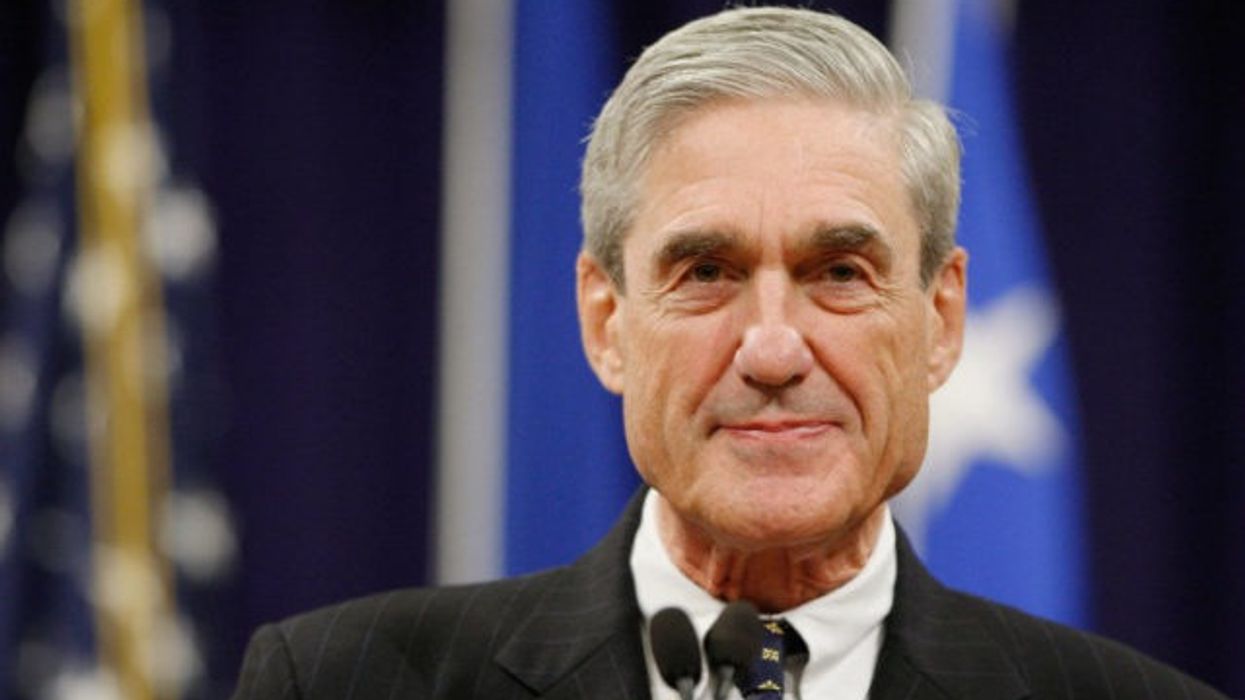Under Trump Regime, America Is Wide Open For Corruption
Is America open for corruption now? Unabashedly? Nakedly? Are we tossing aside not just our hard-won victories over infectious diseases but also the more than hundred-year battle against fraud, bribery and graft?
Honest, clean government doesn't follow automatically from democracy. Before civil service reform, the wealthy or well-connected were able to line their pockets by bribing public officials. The Credit Mobilier scandal, which featured bribes to a dozen congressmen paid in the 1860s by railroad executives, was just one example of a widespread plague.
But just as we were able to defeat smallpox, measles and diphtheria with sensible public health initiatives, Americans were able to beat back public corruption. Reformers, calling themselves Mugwumps and Progressives, animated by opposition to the spoils system, passed laws demanding transparency, requiring a nonpartisan civil service, and paying salaries to public servants so that they would no longer have to rely on a percentage of fees or taxes collected.
And what do you know, it worked! American public administration became much more efficient, the nation became a better place in which to conduct business, and — one almost blushes to extol this in our era — there was a net increase in justice and fairness.
Public corruption is never completely vanquished of course. Look no further than former Democratic Sen. Bob Menendez's gold bars and hundreds of thousands of dollars in cash in his bedroom. (He claimed not to trust banks.) Clean government requires constant vigilance from the police, prosecutors and the courts. It requires a consensus in society that this is crucial, and journalists on the lookout for tales of venality and malversation. There are also tons of civil society groups dedicated to this. They're known affectionately as "goo-goos" for "good government guys." They do more than guard against corruption; they're also committed to good policy and implementation. And all of that helps to make the United States a first world nation.
Or it did.
In his first month back in the White House, Donald Trump is yanking the rug out from under open, honest government and signaling a complete reversal to a time of rank corruption. There may be no historical analogue to the level of corruption Trump is inaugurating.
One reversal is even conveniently labeled. Trump has issued an executive order to Attorney General Pam Bondi to cease enforcing the Foreign Corrupt Practices Act, which forbids American companies from paying bribes abroad. Correspondingly, he has shut down the units in the FBI, State Department and the Department of Homeland Security that were thwarting foreign influence operations in American elections.
Trump has fired 17 inspectors general from federal agencies. Those IGs provide independent oversight and serve to unmask government abuses. If the DOGE project were even remotely sincere, Trump would be adding and empowering more IGs, not firing them. No, the presence of truly independent watchdogs is a threat to the Trumpist project, which is permitting agencies to be used to reward friends and punish foes.
That reward/punish metric was the operating principle in the case of New York City Mayor Eric Adams. Toss out the principle of blind justice (so antique) and bring on the distortion of the prosecutorial power for nakedly political ends. Pause the Adams prosecution in return for assistance in rounding up illegal immigrants, but leave the sword dangling over the mayor's head (the government asked that the criminal case be dismissed "without prejudice," meaning that it could be reopened at a later date) to compel total obedience.
The Office of Special Counsel was created in the post-Watergate era to oversee whistleblower complaints, prevent prohibited personnel practices and enforce the Hatch Act, among other duties. (Despite the similar name, it is entirely separate from special counsels, like Jack Smith, who are appointed by the Justice Department.) Trump attempted to fire the current special counsel, Hampton Dellinger, but his firing has been stayed by a court, for now. The director of the public integrity section of the Justice Department was not so fortunate. He was reassigned, and three "anti-kleptocracy" units crucial to targeting the assets of foreign corrupt actors in several countries were shut down.
It is all friends/enemies now. Trump just ended a database on police misconduct. Police misconduct, after all, may be useful in the coming months and years.
Trump extended his personal reach to Brazil, where fellow coup plotter Jair Bolsonaro is on trial for siccing a mob on his own capital. Trump's company is suing the judge in the case, accusing him of illegally censoring right-wing voices. The unmistakable signal: We like coup plotters as long as they're Trump pals. A fortiori the Jan. 6 insurrectionists Trump pardoned en masse. Not so much as a nod toward making individual evaluations.
Trump pardoned Rod Blagojevich, withdrew felony charges against Rep. Jeffrey Fortenberry (R-NE) and had the DOJ attempt to drop criminal charges against Rep. Andy Ogles (R-TN).
And it's hard to know where even to begin to describe the walking conflict of interest that is Elon Musk, who, with no transparency, is reportedly terminating all manner of government agencies and offices, including many that touch on his business interests.
Trump's America no longer fights the old foes of good government. It has hung a giant neon sign on our door proclaiming Open for Corruption.
Mona Charen is policy editor of The Bulwark and host of the "Beg to Differ" podcast. Her new book, Hard Right: The GOP's Drift Toward Extremism, is available now.
Reprinted with permission from Creators.












